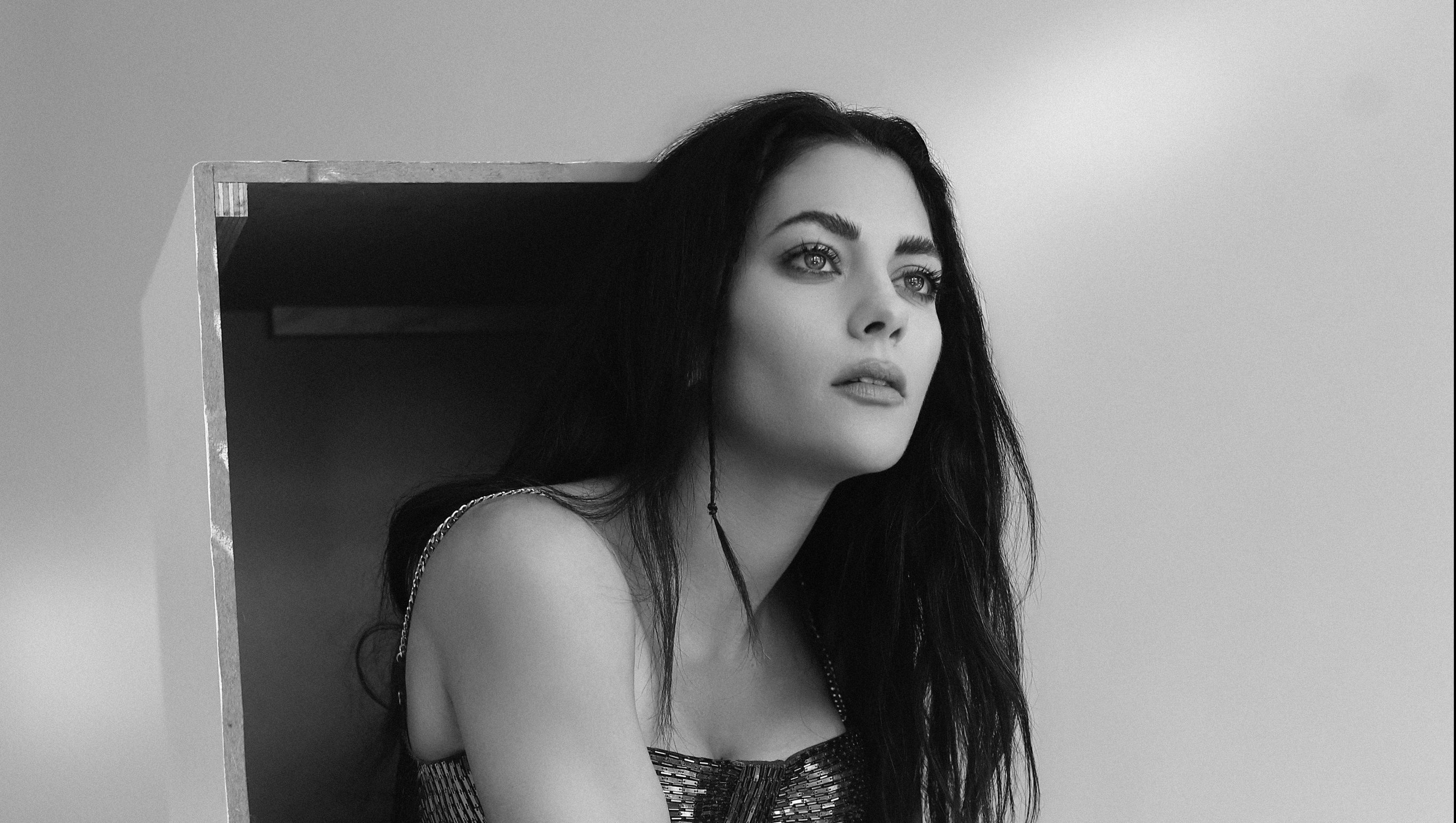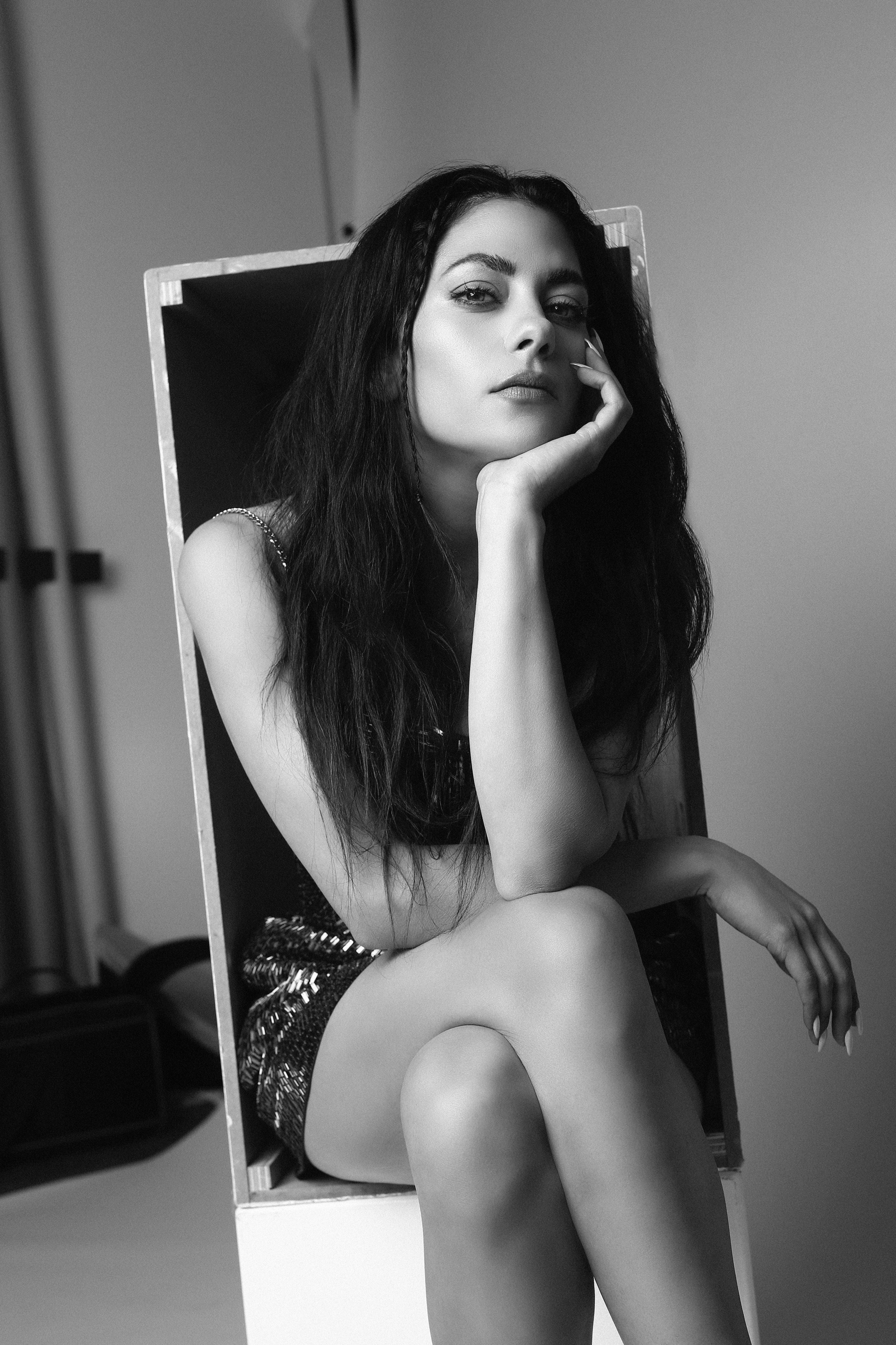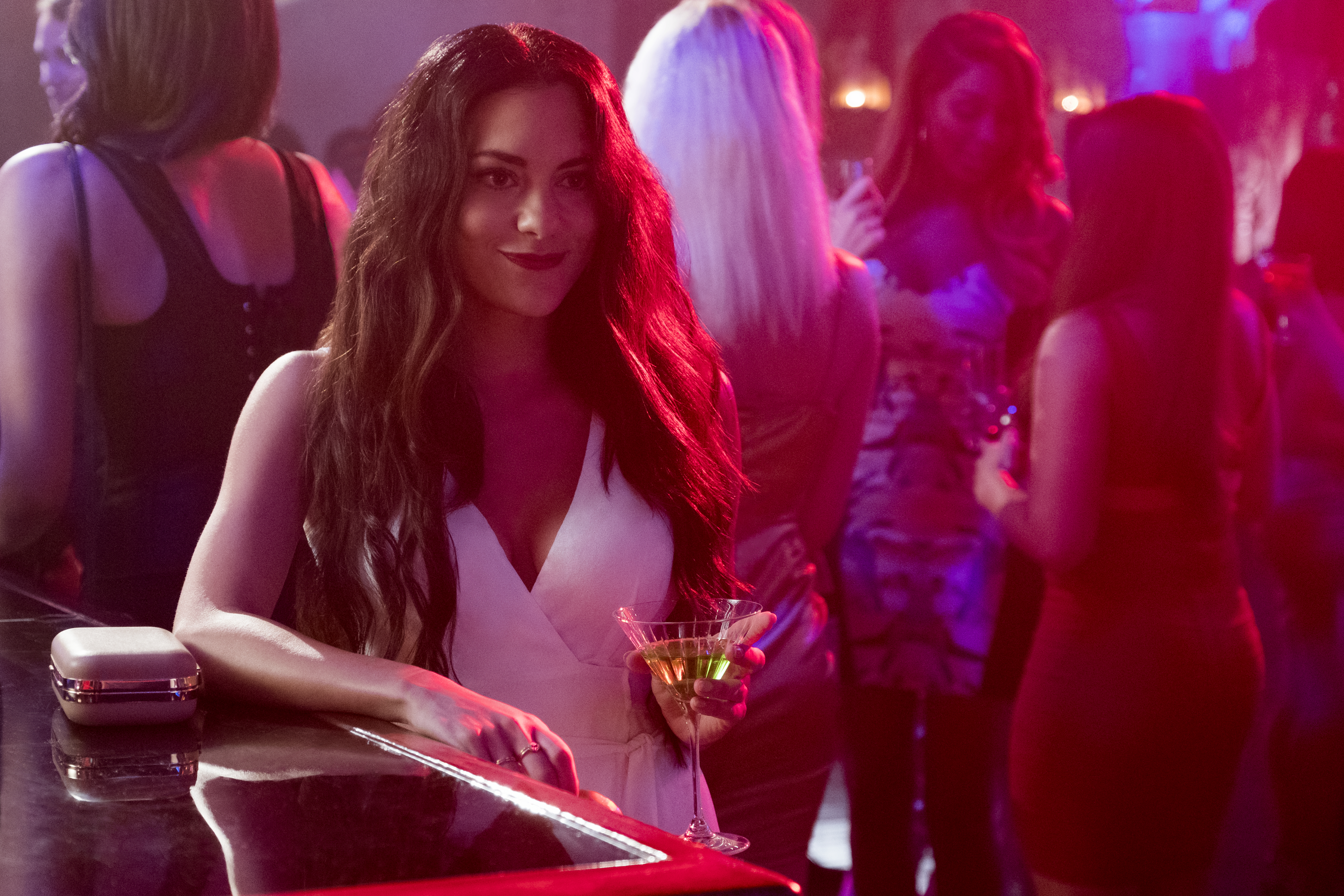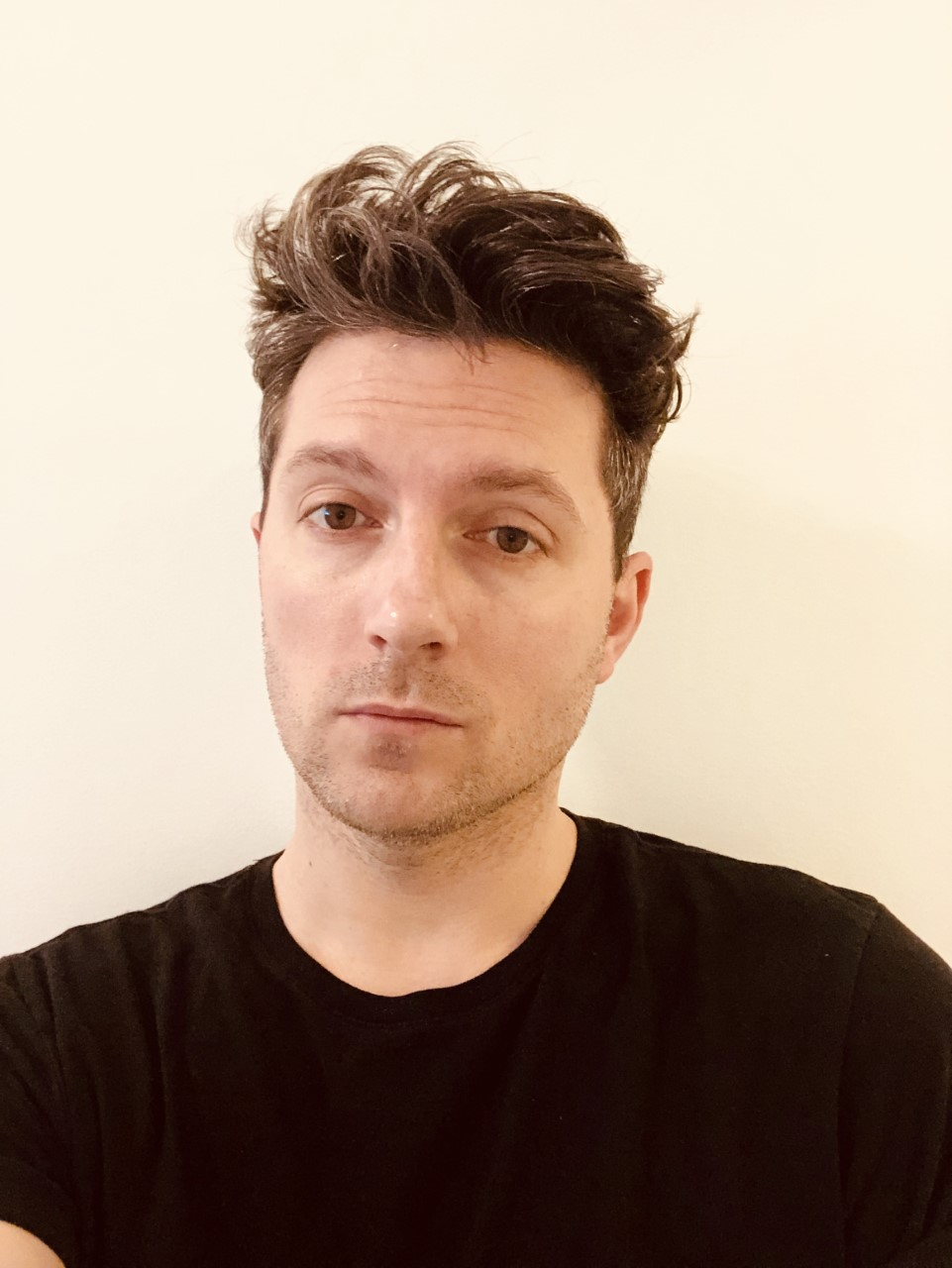

When she first appeared in Season 4 of Netflix’s Lucifer in 2019, Inbar Lavi’s character, Eve, was an appletini sipping naif. She’d escaped a confined and proscribed existence in Heaven and was ready for some excitement. Every new experience was a thrill, and you could see it in Lavi’s wide-eyed, effervescent performance. As pandemic restrictions begin to ease across the country and life slowly returns to something like normal after a year of social distance, that eagerness to experience the world anew is something a lot of people can probably relate to.
Lavi hasn’t exactly spent the past year sitting on her hands, though. In addition to wrapping Lucifer’s upcoming final season, she launched a fashion brand, LAVI, which benefits female-owned businesses affected by the pandemic. She’s been busy planning a wedding; Lavi and fiancé Dan Bar Shira are getting married this summer. She’s also been making music. Her debut single, the deceptively smooth revenge track “Puppet Master,” is due out later this month.
“I can’t believe it’s out there and people are listening to my sh*t! That’s crazy!” the Israeli-born actor gushes when she learns I’ve heard a preview of the song. In conversation, her energy is not dissimilar to Eve’s — delighted, excited — minus the character’s childlike innocence. On a recent call with GRAZIA, Lavi enthusiastically discussed her music and what the future holds for Eve.
GRAZIA: I was thinking about Eve’s first appearance — she’s escaped from Heaven and is out looking for as good time on earth. I feel like that’s kind of comparable to how a lot of people probably feel right now as we come out of the pandemic and things start to open up again.
Inbar Lavi: I think a lot of people can relate to that feeling of, you know, feeling restless and kind of tied down. And now when you finally have that freedom, I think people tend to take more risks and take bigger leaps because they have had that ability taken away from them. So, for me, I think there were a lot of things that I kept putting off before the pandemic. I would say, Oh, one day I’ll release music. Or, you know, We’ll plan the wedding when we have time for it. I’ll launch a fashion line when I have more time. And now it’s just like, we don’t know what’s happening tomorrow! So, there is no better time and I’m not putting anything off anymore. I’m just jumping in and learning how to swim as I go.

Eve was so innocent and enthusiastic when she first arrived on Lucifer. Where did that characterization come from?
The innocence was really rooted in the way she was written. It actually makes sense if you think about her story. If she is the first woman of mankind, yes, she’s been around for centuries. But she is the first one to try everything. And there is innocence in that. Especially someone like Eve who was doomed to live a lifetime in Heaven where everything is pretty much planned out for her. She never really had a say. The only thing she had a say in, she got reprimanded for—which was having a bite of an apple, which was the first taste of knowing. So everything else comes with a lot of innocence. And I think the only real way to forgive her and find compassion for that traumatizing mistake is if it truly came from a place of innocence. So that was a real core for her, throughout.
Obviously, the show is a fun supernatural crime show. But has the role made you think differently about the religious and cultural archetype of Eve?
I definitely think about it more. When you’re presented with a character who has been blamed for the…basically the crumbling of mankind, it makes you really wonder: Where did that originate from? Why is it a woman? Why is it so frowned upon to have a bite if you’re tempted to? Why is temptation such a taboo? What does the devil represent? What does it mean if the devil is actually a fallen angel? All those questions, to really dive that deep into those stories that are kind of the ground that we’re building our society upon, was really, really interesting to me. It’s endless, and I think that’s why the show’s been going for so long and does so well. And there’s no one answer, and it’s so complicated and layered and juicy. Yes, I definitely think about it more than I ever did.

Eve made such an impression in the show’s fourth season. She’s very charismatic and kind of a breath of fresh air. But then she was out of the picture for most of Season 5. What kind of reactions did you get from fans during her absence?
I absolutely feel a breath of fresh air when I step into her. I’m glad to see that it’s coming across. I mean, fans missed me! And I missed them and I missed the show. Season 5 was supposed to be the final season, and the writers were gearing up to give the audience the most fantastic grand finale. I was always planned to come towards the end. The whole plan was to have them wonder, Is she coming back? What’s the endgame? And then boom! She shows up. And we were supposed to wrap it up. And then very late into the game they said, “You’re getting another season.” I’m so grateful to be a much larger part in Season 6.
What can you say about the role Eve will play in the final season?
I think the only real way I can answer that is to keep it specific to Eve and her storyline. I think the most important thing, to me, when I look at a character, is to have an arch. So, you start somewhere, you go somewhere and you end somewhere completely different. Because if you end in the same place you started, there’s not growth and there’s nothing to learn from that. For me, Season 5, yes, there’s development. It’s coming into your own and learning some lessons. But there were a lot of similarities in terms of the actual story of what was going on for Eve. And I was really happy to see that in Season 6 it changes.
You’re releasing your first single later this month. Have you always been a musician as well as an actor?
It kind of came hand-in-hand. Growing up in Israel, I would always put on plays for my parents and get on stage and sing in kindergarten and middle school and high school. I would write songs and I would sing them all the time. I would just perform for anyone who was bored enough to listen. I was one of those annoying kids, really! At some point it became very clear to me that I’m no Mariah Carey and I had very clear passion for acting and for storytelling in that way. But I never stopped loving music. It’s very much a part of my life. I have a lot of musician friends. That’s our core group and what we do on Shabbat dinners is we gather around a table and sing Shabbos songs. And we eat and then we sit by the piano and we can literally sit down and write a song together. That’s something we do on a regular hangout.
And two years ago, I was going through a rough breakup. I had all this emotion inside me that I needed to channel out. We had just wrapped the show. I wasn’t on a set and I wasn’t filming and I didn’t have a way to channel it. And I started writing it all down. My manager at the time was the first person to see that and really recognize the potential and said, “I want to throw you in a studio with a producer and see what happens.” We wrote a really beautiful song, and then we wrote another, and then we wrote 20.
Who are some of your musical influences?
So many! I have a list of Israeli artists that you probably wouldn’t know. Arik Ainshtein is, like, a genius. Shalom Chanuch and Yehudit Ravitz — these are records that my dad would play nonstop. He also listened to Abba and Pink Floyd, and I love Nina Simone and Norah Jones and Whitney Houston and Britney Spears, you know? It’s endless. And they all affected me in different ways.
How would you describe your sound?
I mean, listen, we consider it indie pop. I guess that’s what it is. It’s so strange to me to even put it in a box or to even consider myself a musician. This is so new. I think you’re the first person I’m talking to about my music.
Talk to me about “Puppet Master.” What’s the song about?
So, “Puppet Master” was written from a place of frustration. I remember, I had a conference call in the car driving up to my producer, J.T. Roach who wrote it with me. And I was very, very upset after that call. And he was super chill. He was like, “What are you thinking? Do you have any ideas?” and I was like, “YES!” It was very clear to me that I felt in that moment like my hands were tied and I don’t do well when I’m out of control. That was my way, in that room, of gaining that control back and getting my power back. I think everyone can relate to feeling like they’re a puppet in someone else’s show. For me, the power comes from realizing that no one can ever really use you as a puppet. No one can every really control you or take away your power. You can only let them. The only way for you to get your power back is when you put your foot down, when you don’t let people step all over you, when you don’t work with people who might take advantage of you. When you don’t go into a relationship where someone might abuse you. The idea is to cut the ties. And that doesn’t have to be from someone else holding those. It can be cutting the ties from yourself.
I also wanted to ask what it’s been like for you, personally, as an Israeli, watching and reading about the situation in Israel over the last few weeks?
Well, first of all, thank you for bringing it up. I know it’s a very loaded topic, and it’s a complicated question to ask. It’s absolutely a complicated question to answer. And I appreciate you bringing it to light as opposed to acting like it doesn’t exist, which tends to make the problem even bigger.
I didn’t find out about what’s happening in Israel from the news or from Instagram. I found out about it because my mom and my brothers and sisters and cousins and family and best friends and everyone that I know, that I’m connected to, lives there. So, I found out because my phone started ringing. Because they all had to run down into underground shelters to hide from bombs coming towards their house. So, my experience of these few weeks — or couple months, I should say — has been from one WhatsApp message to the next, just praying to God that they were still alive. And I think that’s something that you can’t learn from Instagram or from CNN News. I grew up like this. This is a constant battle that has been going on since the beginning of time in the Middle East. And the reality is that both sides suffer.
War is a terrible thing, and when there is war, there is only consequences and only losers. There’s never winners. People who live in Gaza are miserable. People who live in Israel are miserable. And the only thing that they can both agree on is that there is a real need for change. And I actually just heard that there is change in place. From what I understand, our government is about to — they’re basically pushing out [Prime Minister Benjamin] Netanyahu, which is a real inkling of hope. More so than we’ve had in years. I believe Gaza has gone through a real…[shake-up] in the past couple months as well, and they would have more of a hopeful place to negotiate from now on. I always want to believe that there’s a world where we can live together in peace and be able to be good neighbors. I think that’s what we all want.














